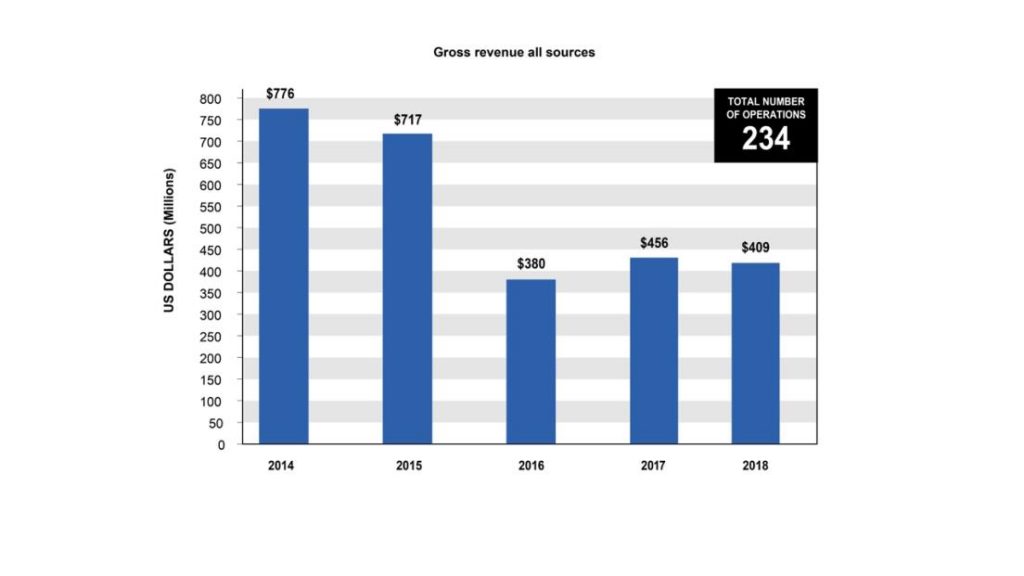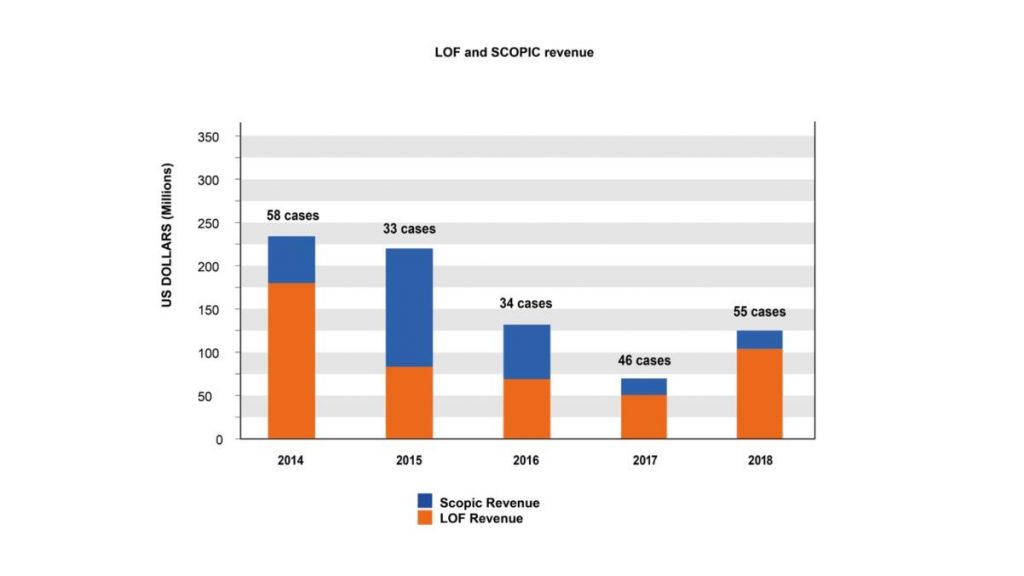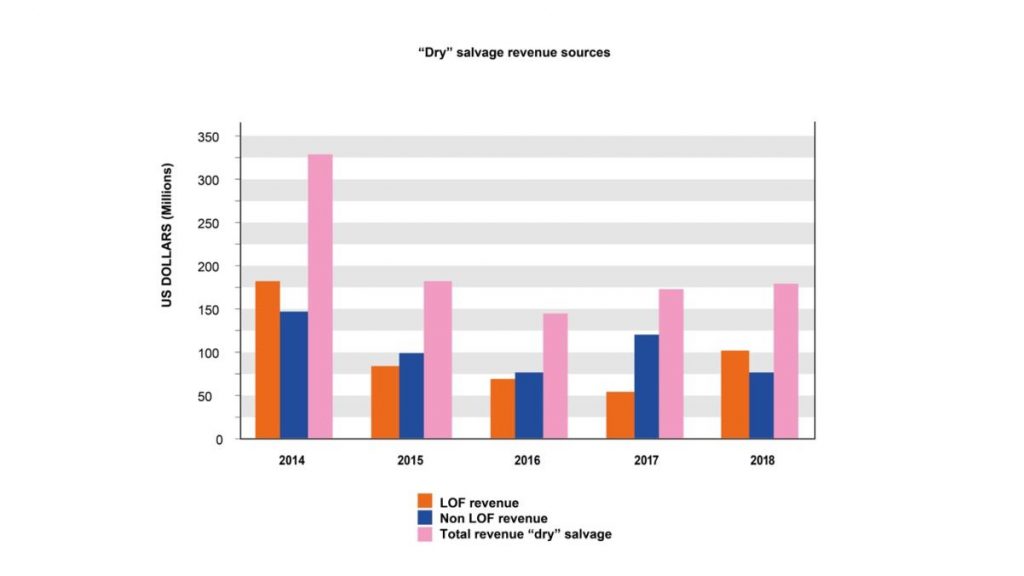ISU today published its annual statistics for 2018:
Activity levels sustained but salvage industry continues to experience reduced returns.
• Gross revenue for ISU members – US$ 409 million (2017, US$ 456 million)
• Activity levels – 234 services (2017, 243 services)
• LOF cases up – 55 (2017, 46) and LOF revenue rises to US$ 104 million (2017, US$ 53 million)
• Wreck removal income – US$ 208 million from 71 services (2017 – US$ 264 million from 116 services)
• The industry continues to be active, continues to invest and continues to provide essential services for ship owners and insurers
Commenting of the statistics, ISU President, Ms Charo Coll, said: “The 2018 ISU statistics again show the economic pressures on our industry. In response, ISU and its members, must continue to promote the value that the industry provides to ship owners, insurers and the wider shipping industry and society.
“ISU committed in 2018 to be forward looking and to recognise that its members contract in different ways and deliver many vital services. Their operations help to prevent and mitigate loss; protect the environment and support world trade by keeping goods moving and seaways and ports open.
“There is fierce competition but professional salvors with their own people, equipment and experience bring an expertise to the most difficult jobs giving confidence that the operation will be expertly managed, lives saved, the environment protected and the value of property preserved.”
The total number of “dry” salvage services (emergency response as opposed to wreck removal) in 2018 was 234. Additionally there were 71 “wet” (wreck removal) cases.
The statistics show that the industry’s revenues have dipped from the performance in 2017 and are up on the low point of 2016 but the numbers are still well below the levels of several years ago when annual income was typically more than US$ 700 million.
The statistics show that Lloyd’s Open Form (LOF) continues to be an important contract and in 2018 there were 55 cases for ISU members generating income of US$ 104 million. It compares with 46 cases worth US$ 53 million in 2017. Average income from each LOF case was US$ 1.9 million representing 7.45% of the average LOF salved value.
Revenue from LOF cases represented 58% of all “dry” salvage revenue and LOF cases accounted for 24% of all “dry” salvage cases in 2018.
Total revenues from SCOPIC continue at very low levels at US$ 21.3 million, marginally up on the all-time low of US$ 20 million in 2017.
Revenue in 2018 from operations conducted under contracts other than LOF was US$ 75 million – down from US$ 115 million the previous year. Average revenue from non-LOF contracts was therefore US$ 419,000 per case.
Wreck removal income has grown during the past decade and remains an important source of income for members of the ISU. In 2018, 71 operations produced income of US$ 208 million – 51% of total income.
The ISU statistics are collected confidentially from all ISU members, aggregated and analysed by a third party. The statistics provide the only published measure of the state of the marine salvage industry. They do not include the revenues of non-ISU members. The statistics are for income received in the relevant year but that can include revenue from services provided in previous years which introduces an element of “lag”. The statistics are for gross revenues from which all of the salvors’ costs must be met.
Graphics follow







